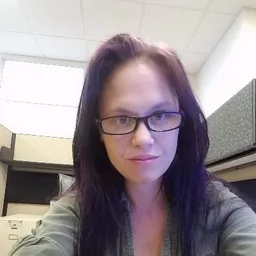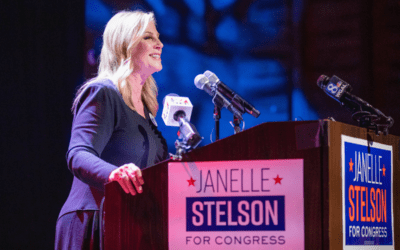
School staff pack grab-and-go meals for distribution to students and families at John H. Webster Elementary School in Philadelphia, Wednesday, March 25, 2020. (AP Photo/Matt Rourke)
Right now, almost all students in the commonwealth are eligible for a free meal, but that ends with the school year and has not been extended. Many think it should.
As a single parent, Steph Phillips worries a lot. She worries about whether she’s doing a good job, whether the economy will improve, whether costs will continue to rise, and whether her daughter will be happy and healthy.
She also knows the extreme relief when even one simple worry, such as the cost of a school lunch, is lifted from her long list of responsibilities.
“When you have to work out custody schedules and try to shuffle your child between homes, on top of everything else you have to deal with as a parent, it can be hard,” the 40-year old Allentown resident said. “Then, having to financially afford everything on your own, you worry if you’re doing a good job; if they are getting everything they need, even something as simple as a meal.”
Phillips, who works full time and is a mom to a fourth-grader at Kernsville Elementary School in Lehigh County, knows it’s not just single parents who struggle. Even working as a team, parents can sometimes face hardships. That’s why state Rep. Austin Davis (D-Allegheny), Gov. Tom Wolf, parents, and school organizations are urging Congress to extend the nationwide waivers of the school lunch program and provide free meals to all students again during the 2022-23 school year.
“If you ask any parent with kids in school, rich or poor or in between, they will probably tell you that over the last two years this program has been one of the few good things that has happened,” Davis said. “It’s one less stress for those working parents trying to get out the door in the morning, one less hard decision for the struggling parent trying to make ends meet and prioritize their bills.”
Waivers for the 2021-22 school year are set to expire on June 30 and can’t be offered past this date without approval by Congress. This means that the free lunches countless Pennsylvania families have relied on will expire, leaving millions of children without consistent access to food.
What Are School Lunch Waivers?
The National School Lunch Program (NSLP) is a federally assisted meal program operating in public and private schools and child care centers. It provides nutritionally balanced, low-cost or free lunches to children each school day.
The USDA, through its Food and Nutrition Service, administers the program at the federal level. The state education department operates the federal program at the state level through agreements with school districts. There are income guidelines to qualify for a free or reduced lunch.
Since the beginning of the pandemic, Congress allowed the waiver of income guidelines, meaning every Pennsylvania student was eligible for a free lunch. This was done to ensure the program could adapt to the fallout from the pandemic and that students still received a nutritious meal despite short- and long-term closures.
How Many Pennsylvania Children Are Eligible for Free or Reduced School Lunches?
More than 1.5 million Pennsylvanians, including more than 443,000 children, are at risk of hunger, according to Feeding Pennsylvania.
For some children, a school lunch might be their only source of food.
Pennsylvania had over 1.7 million students during the 2018-19 school year, according to school lunch reports from the state Department of Education. Of them, almost 900,000 (52%) were eligible for a free lunch and another 50,000 (3%) were eligible for a reduced-price lunch.
With the waivers, schools across the commonwealth served more than 16 million free lunches in November 2021 alone, according to state reports.
Why the Waivers Are Important
The cost of everything is going up, Phillips said, and that puts a strain on every family’s budget. Even something as simple as waiving the $2 to $3 fee of a school lunch (a total of $360-$540 per year) helps and is one less thing to stress about, she said.
“Could you imagine, as a parent, not being able to provide enough food for your child?” Phillips said. “I can’t work when I’m hungry. A child certainly can’t learn with an empty stomach.”

In addition to providing a free meal, the waivers also allowed flexibility as to how meals were served. This meant schools could hand out bagged lunches while schools were closed and students were learning virtually.
In February, the Wolf administration sent a letter to Pennsylvania’s congressional delegation, urging them to extend the waivers through the 2022-23 school year.
Earlier this month, Davis introduced a resolution at the state level urging Congress to extend the waivers.
“At a time when the price of everything from a loaf of bread to a gallon of gas is on the increase, allowing this program to end could be devastating for families and school finances,” Davis told the Keystone. “Making sure kids can eat a basic nutritional lunch should not be a budgetary luxury, or a bargaining chip. Why wouldn’t we make sure that every child, regardless of their background, has access to a nutritional meal?”
It wasn’t just students and parents that benefited from the waivers. Schools also received more federal reimbursements to cover the cost of extending the free lunch program to all students. This helped a lot of schools, said Andrew Armagost, director of Advocacy and Analytics with the PA Association of School Business Officials.
“Just letting the waivers expire could have impacts on the ability of school districts to return to normal operations,” he said.
Most schools won’t be able to withstand the rising costs of food, labor shortages, and supply chain disruptions if the waivers expire, Armagost said.
All but one school district in the state opted to provide free lunches this school year, said Kendall Alexander, spokesperson for the state education department. Seven schools in the Methacton School District in Montgomery County provided free lunches only to students whose families met the income guidelines as normally required.
While Phillips takes it one day at a time and doesn’t want to think about next school year, she does continue to worry.
“What will next school year look like,” she said. “Will more, different strains of COVID cause closures again? What will the economy be like? I don’t have a crystal ball. I can’t answer any of the worries I have. But it would be nice to have one certainty, even if it is something as simple as a free school lunch for my daughter.”
Support Our Cause
Thank you for taking the time to read our work. Before you go, we hope you'll consider supporting our values-driven journalism, which has always strived to make clear what's really at stake for Pennsylvanians and our future.
Since day one, our goal here at The Keystone has always been to empower people across the commonwealth with fact-based news and information. We believe that when people are armed with knowledge about what's happening in their local, state, and federal governments—including who is working on their behalf and who is actively trying to block efforts aimed at improving the daily lives of Pennsylvania families—they will be inspired to become civically engaged.


For Rep. Susan Wild, supporting PA families includes reproductive rights and much more
Rep. Susan Wild wants to be very clear with Pennsylvanians: Donald Trump is committed to taking away women’s reproductive freedom, but he is not...

School districts working with anti-LGBTQ groups can cost your kids’ schools millions
Parents across South Central Pennsylvania are worried about the potential financial impacts working with anti-LGBTQ groups may have on their school...

VIDEO: Trump distances himself from his anti-abortion views
Donald Trump appeared on WGAL on Tuesday and continued to distance himself from his anti-abortion views claiming that reproductive rights are now a...

VIDEO: Community pushback gets school board to rescind decision on denying gay actor’s visit
Cumberland Valley School Board offered a public apology and voted to reinstate Maulik Pancholy as a guest speaker a week after the board voted to...

VIDEO: Project 2025 brings nuclear armageddon back into vogue
Project 2025 is a titanic document, with plans ranging from cutting half of all government employees to targeting reproductive rights on a scale...





